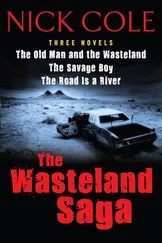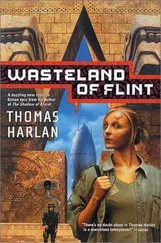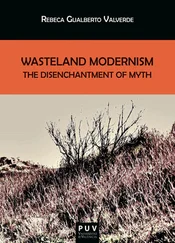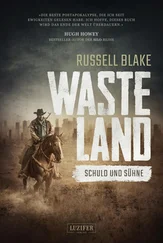“I don’t mean dogs.” He spat before he took the turn.
Once they were gone, Esther expelled a long breath. She was surprised to find that she was trembling and even a little sick. Why?
Was it because Eli had done her a favor, meaning she was now indebted to him? True, he had often seemed sympathetic to her in the past, and she had never minded. He had always been kinder than the others, and not as close-minded. Yet now that she had asked for his help, and he had given it, they were linked, somehow, in a way they hadn’t been before… and Esther was not at all sure how she felt about that.
In Prin, Esther and Eli, not to mention Sarah, stuck out for being single. Nearly everyone got partnered when they reached fourteen. By seventeen, they were considered town elders, and by nineteen, they were dead. That was the longest anyone managed to escape the disease; it was everywhere there was water, carried in the rain, lakes, streams. Couples spent their short lives together at meaningless and backbreaking jobs, often toiling side by side, and all for just enough food and clean water to survive. Esther was already fifteen, a year past the age of partnering. Was this really all she had to look forward to?
When she was old enough to rebel, Esther began breaking curfew and spending more time with Skar. At first, people in town treated her with condescension, as an oddball. Now, they viewed her as a pariah, a freak. And Esther had been fine with that. Being an outsider made her feel strong, even invincible. But lately, she found she was often beset by a strange sadness.
She would always love Skar. But despite Esther’s efforts to embrace their culture and learn their ways, the variants themselves still refused to accept her as one of their own. Her one trip to the variant camp had been a disaster: She was treated coldly, with suspicion and hostility, by the rest of Skar’s tribe. Esther hoped that one day she would be welcomed as the ally she was; but after so many years, she had yet to even meet her best friend’s brother.
The town of Prin wasn’t home, either. She fit in nowhere.
Esther knew how she really felt.
She felt alone.
Maybe there could be someone else to be truly close to, she thought. Or maybe there could be something bigger to be a part of—what, she wasn’t really sure. A little while ago, Esther would have laughed at the idea. But she wasn’t laughing now.
“Are they gone?”
Hearing her friend’s voice, Esther snapped to attention.
The variant girl now crept from behind a row of parked cars and stood by Esther with fists clenched, tense and ready to run.
Esther brushed aside her own concerns, to put her friend at ease.
“We’re fine,” she said, nudging Skar in the side. “Now let’s see who makes it to the tracks first.”
Eli and the others rode their bikes single file down the main road heading away from Prin. He led them past the hulking, plundered ruins of buildings on the edge of town, places that still had names, meaningless words they didn’t know how to read: STAPLES, HOME DEPOT, THE ARBORS NURSING HOME, STOP & SHOP.
Eli pedaled slowly, so Bekkah could keep up. He was careful to steer around the broken glass, discarded bits of machinery, and chunks of dirty plastic that littered the pavement beneath their tires.
They avoided detritus left by the periodic rising and retreating of floodwaters: bleached-white shells and stones, the rotting remains of a rowboat. There were other things that must have been swept away by the dank waters: a rusted hunting rifle; a blond wig that had become a filthy, tangled mop; a safe deposit box with the top torn off and the dust of long-dead crabs inside.
Ahead, the road became a bridge, passing over a much larger avenue underneath.
Eli stopped as he considered where to go.
“We already checked over the bridge,” commented Bekkah, as she pulled up alongside him.
“Yeah,” said Eli. “But we didn’t go down there .”
He pointed, and Till swallowed hard.
“Are you sure,” he muttered, “we have to?”
Eli shrugged. “We been out here two weeks and ain’t got a drop. There’s no place else to check. Come on—it’ll be fine, and maybe we’ll even be done today.”
The others seemed reassured. Eli pretended to look at ease as they glided down what had once been the on-ramp to the northbound lane of the interstate.
At times, the deserted road was almost impassable with fallen trees, downed streetlights, dead power lines; but the three managed to find a way through. Both sides of the highway were overgrown with heavy, tangled undergrowth that in some areas spilled past the shoulder and onto the road itself, and in some places obscured the aluminum barriers once built to muffle the sounds of traffic.
“Nothing so far,” Eli called over his shoulder. He was talking too loudly, he realized, from nervousness.
He was on edge in case they saw a body.
Although none of them talked about it, they all knew that people with the disease were Shunned, sent from town on this highway to die; that way, it was said, they wouldn’t contaminate the others. No one knew exactly where they ended up. There were rumors in town of a Valley of the Dead, a mass grave filled with the remains of innumerable children, although such a place had never been seen. Some thought it was no more than a bedtime tale told to frighten the little ones.
Eli was not sure he believed the story, but he worried they would see or smell remains on the road or off to the side. Which would be worse, he wondered: if the body was fresh enough to be recognized or too rotted to identify? The smallest ones would be the worst, he decided, and skeletons of any size.
“Hold on! Back up!” Till yelled.
They slowed down. Sure enough, they could see something peeking out from a dense tangle of vines, brush, and litter, close to the highway wall, where no one would have searched.
“Yeah,” Bekkah said. “Looks good.”
It was a dark green car, compact yet roomy, with an incomprehensible word framed by a steel circle on the front grill: VOLVO. The three pedaled onto the curb, then got off and walked their bikes through the clotted grass of the shoulder to reach it. With difficulty, Till pulled the wagon as well.
Bekkah fished out a steak knife hanging from her belt on a nylon cord and sliced away the vines and branches that strangled the car. Working methodically, she cleared away a space on the left side of the vehicle, above the back tire.
Eli took the crowbar from the wagon and flipped open the small metal panel in the side of the car. Then, with a few yanks, he pried off the cap to the gas tank. Till handed him the tube, and Eli snaked it down into the tank, feeding it inch by inch.
In the hot sun, the others watched his expression. Moments later, Eli smiled as he felt the end of the line hit gas.
“A decent amount,” he said, relieved.
“Good,” Bekkah said. “He was mighty mad last time. Wouldn’t hardly give us nothing.”
“He’s been like that for a while now,” Eli said.
They were talking about the one they worked for, the one who lived on the outskirts of town. The boy called Levi.
Levi lived in a kingdom of sorts, in that he saw himself as a kind of king. Yet his home was more of a fortress, as the windowless building was massive, guarded, and impenetrable. It was nicknamed the Source because while no one in Prin had ever ventured inside, it was quite literally the center of life; the townspeople would soon die without it. It was powered by the only electricity any of them had ever seen, electricity generated by the countless bottles upon bottles of gasoline everyone in town spent so much of their lives searching for.
Читать дальше












